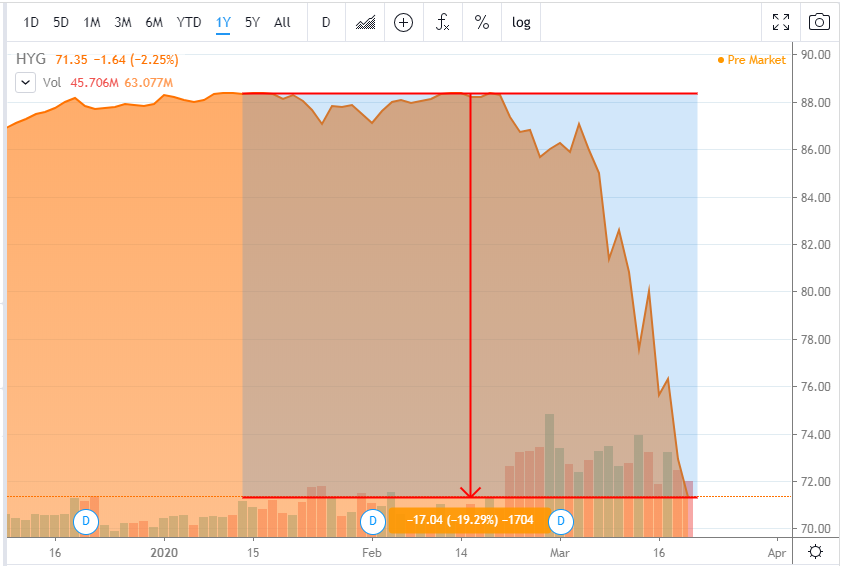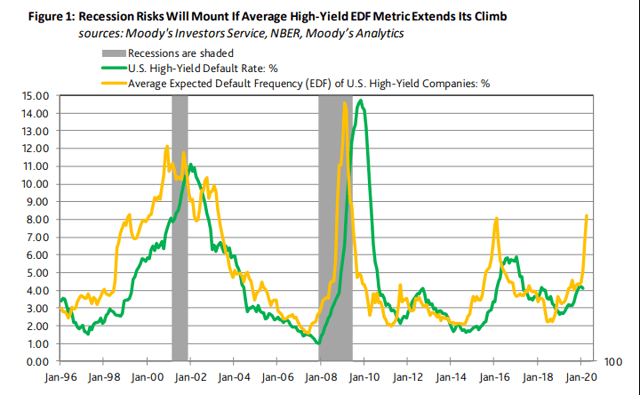Keep An Eye On The Corporate Credit Market During The COVID-19 Crisis
The credit market will be pivotal during the current crisis. In 2008, we had a problem in the credit market (Subprime mortgages), which made financial institutions move into credit tightening mode. Soon, that start cascading into the real economy. The current environment inverts that relation. The problems start with the real economy being hit hard by the draconian measures to contain the spread of the virus. That’s increasing the credit risk of several companies that are closing doors during the lockdown.
(Click on image to enlarge)

Source: Seeking Alpha
As you can see in the graph above, the iShares iBoxx $ High Yield Corporate Bond ETF (HYG) lost close to 20% of its value in little more than a month. Obviously, a company whose assets’ market value is decreasing, is becoming riskier. That’s even more notorious for high-yield companies. Moody’s Analytics does a good job capturing this relation in the graph below.

(Source: Moody’s Analytics)
In the graph, you can see that the average expected default frequency (EDF) doubled in January, from the last week of 2019. And, that was in January. Imagine now that the high-yield market, as measured by the HYG, lost 20% of its value.
We are risking that a purely economic event (draconian lockdown) creates a credit tightening, which in turn creates further economic problems. At this stage, the Fed’s main goal has to be to maintain the credit market together and minimize the rise of bankruptcies that might create permanent dislocations on the economy. Imagine the long term impact of Boeing (BA) going bankrupt. That could impose long-term lasting effects on the US aerospatial industry. And, yes, Boeing might have committed many sins, like building a bad product and spending money on buybacks. But that is just part of the story. We also have to weigh in the long term economic impact of allowing it to go bust.
All-in-all, investors should keep an eye on the corporate credit market, and search for cracks in it. If high-profile bankruptcies materialize, the market should get even more depressed.
Disclaimer: This text expresses the views of the author as of the date indicated and such views are subject to change without notice. The author has no duty or obligation to update the ...
more



Hedge funds are likely in bad shape. Not much appetite for bailing out Boeing which should never be allowed to buy back stock ever.